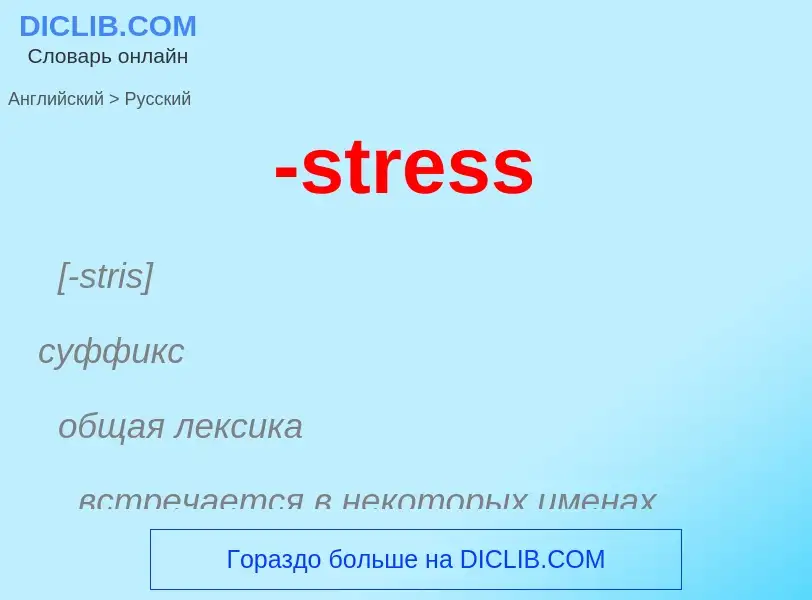Перевод и анализ слов искусственным интеллектом ChatGPT
На этой странице Вы можете получить подробный анализ слова или словосочетания, произведенный с помощью лучшей на сегодняшний день технологии искусственного интеллекта:
- как употребляется слово
- частота употребления
- используется оно чаще в устной или письменной речи
- варианты перевода слова
- примеры употребления (несколько фраз с переводом)
- этимология
-stress - перевод на русский
[-stris]
суффикс
общая лексика
встречается в некоторых именах существительных, обозначающих лицо женского пола
общая лексика
экологический стресс
нагрузка на окружающую среду
нагрузка
обусловленная внешними условиями
воздействие на окружающую среду
нефтегазовая промышленность
экологический стресс, воздействие на окружающую среду
медицина
физиологическая нагрузка
Википедия
Abiotic stress is the negative impact of non-living factors on the living organisms in a specific environment. The non-living variable must influence the environment beyond its normal range of variation to adversely affect the population performance or individual physiology of the organism in a significant way.
Whereas a biotic stress would include living disturbances such as fungi or harmful insects, abiotic stress factors, or stressors, are naturally occurring, often intangible and inanimate factors such as intense sunlight, temperature or wind that may cause harm to the plants and animals in the area affected. Abiotic stress is essentially unavoidable. Abiotic stress affects animals, but plants are especially dependent, if not solely dependent, on environmental factors, so it is particularly constraining. Abiotic stress is the most harmful factor concerning the growth and productivity of crops worldwide. Research has also shown that abiotic stressors are at their most harmful when they occur together, in combinations of abiotic stress factors.






